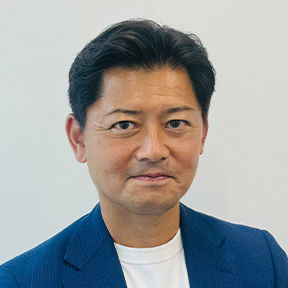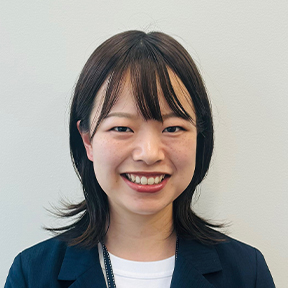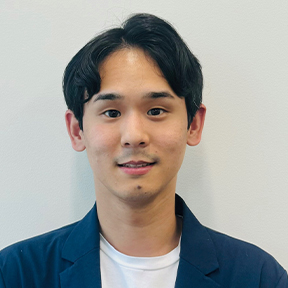2024.11.21

Integrated management across Mitsubishi UFJ Financial Group
accelerates startup support!

Mitsubishi UFJ Financial Group has newly established the Startup Acceleration Strategy
Division. It will serve as the group's command center for MUFG Bank, Mitsubishi UFJ
Securities Holdings, Mitsubishi UFJ Trust and Banking, and venture capital (*) companies in
providing support that puts forward the unique culture and characteristics of the Mitsubishi
UFJ Financial Group through more visible representation.
(*) Investment companies and organizations specializing in investing in unlisted companies
including startups.
Mitsubishi UFJ Financial Group (MUFG) is stepping up its startup support activities. In
April 2024, the Growing Industries Support Office, part of MUFG Bank, was upgraded and
reorganized as the Startup Acceleration Strategy Division. Personnel from the group’s
holding company also concurrently serve as members in the cross-company division. We asked
Shinsuke Tsukahara, who leads the new division, about the aim of the reorganization.
"Startups will be the engine that drives Japan's industrial development in the future,"
Tsukahara explains. "Startups will be the ones to provide solutions to social issues. They
are key to Japan's revitalization. The group's new Medium-term Business Plan, which started
in April, has listed startup support as a critical initiative. As a group, we are resolved
to take on a bigger role to boost startup enterprises."
For the newly established Startup Acceleration Strategy Division, what does it mean to be
part of both the bank and the holding company?
"It sends the message that the initiative is not confined to the bank," answers Tsukahara.
"Instead, we reach across the group, including the securities, the trust bank, venture
capital, and corporate venture capital operations to accelerate integrated management. The
division is, in essence, the group's control tower."
So far, each group company has been promoting startup support separately while coordinating
with each other. Still, they sometimes found out about each other's activities through media
reports. Also, the companies tend to offer support in different manners from each other.
They concluded that the group can develop closer and better working relationships with
startups if the group companies align their efforts and provide support in a more integrated
and visible manner. The coordinated approach will help MUFG demonstrate its seriousness to
society.
What are the four support measures that signify MUFG's uniqueness?
Tsukahara was appointed head of the Startup Acceleration Strategy Division after working as
the branch manager of the Azabu and Shibuya branches. Both offices cover the Roppongi and
Shibuya areas with a heavy concentration of startups. Tsukahara has directly supported
startup entrepreneurs through business strategies and cash-flow management.
Currently, the division has a staff of around 40 personnel. In addition to Tokyo, there are
offices in Nagoya and Osaka. The staff is divided into two groups. The Business Promotion
Department directly supports startups, and the Planning Department plans and promotes
measures to contribute to MUFG's overall support for startups. They work with the Startup
Acceleration Division, a frontline force of over 20 people.
“So far, the bank has played the main role in startup support. Now we plan to assemble
professionals from each group company, such as the securities, the trust bank, and venture
capital, on an on-loan basis to work together in the same location. We hope to put more MUFG
characteristics forward and reinforce areas expected of us,” says Tsukahara.
So, what exactly are those MUFG characteristics?
The first is internationality and global reach. The goal is to be the financial institution
which anyone who wants to venture overseas turns to first.
The second defining characteristic is collaboration with major corporations. The group's
customer base with a large number of major corporations is one of its strengths, enabling us
to take a multifaceted approach to supporting collaboration between established corporations
and startups, including open innovation.
The third is M&A. For 70% of Japanese startups, the exit strategy is an IPO (initial public
offering), while 90% of American counterparts choose M&A. Of course, an IPO serves as an
indicator of success for entrepreneurs. However, in many cases in Japan, a small startup
goes public and fails to accelerate its growth afterward. It is a fact that M&A becomes
necessary to stay competitive on the world stage.
The fourth is finance, particularly debt financing, which is at the core of the business. We
aim to provide more flexible and larger-scale financing. By strengthening in these areas, we
will enhance MUFG's uniqueness.
The two things necessary for entrepreneurs' survival are management skills and team skills.
So, what is Tsukahara's take on the current startup trends?
"The Kishida administration announced the 'Startup Development Five-Year Plan' in 2022, with
the major goal of increasing investment in startups by tenfold over the next five years and
creating 100 unicorn companies (*)," Tsukahara says. "However, after a couple of years, the
number of unicorn companies has remained flat, and investment has decreased slightly. Still,
Japan's situation is not so bad as we have not been affected much by interest rate hikes or
inflation compared to the United States. Regulatory reform is progressing as well, so I
expect we will make a comeback."
(*) A privately held startup with a valuation of $1 billion or more
That said, there is also a startup polarization in Japan. Funding is concentrated on the
startups considered doing well, while the rest are kept on the back burner. Nonetheless,
various subsidies and support measures are available to entrepreneurs, making it an
environment favorable for starting a business.
Tsukahara continues: "If our goal is to foster startups in Japan that compete on the world
stage, the IT startups' competition would be the IT digital giants collectively known as
GAFAM (Google, Amazon, Facebook, Apple, Microsoft). Formidable opponents. If we seek a
winning strategy, where should we look? I think the most promising areas are deep tech
fields such as nuclear fusion based on university research assets, but startups in these
fields still need time to grow. That is why we must recruit talented managers and provide
large-scale support. We want to commit ourselves to this area."
The number of young people in Japan who want to start their own business is increasing
compared to the past. However, there is no point in calling yourself an entrepreneur if you
cannot manage the company so it survives. Tsukahara, previously a branch manager, describes
the requirements for a business's survival:
"Many in the deep tech field have a research background, and the company's survival depends
on their technical skills. However, in the digital IT field, a company's survival ultimately
depends on the strength of its manager. The manager must have the flexibility to change the
content of their business in line with changes in the business environment. The individual's
management ability is more important than the business model. The strength of the team is
another crucial factor. It includes the team's ability to procure funds. You can achieve
what you start out to do only when you have an able manager and a solid team."
I want Japan to be the hub of wisdom and innovation in the world
In fact, the problem with Japanese startups is the shortage of talented managers. There are
plenty of supporters, but qualified and skilled startup managers are still lacking.
Historically, most innovations in Japan have originated in large corporations rather than
startups. Tsukahara points out that if startups have more successful innovations in the
future, it will transform Japan.
"To accelerate the development of Japanese industry, I think it is important to take steps
such as having successful cases of Japanese startups and attracting global wisdom and
innovation to Japan, including overseas startups," he says. "Maybe foreigners will start
businesses in Japan. Japan is safer than many other countries and easy to live in. We need
to attract superior talents to Japan using these merits as important selling
points."
The MUFG Startup Acceleration Strategy Division is working on various support measures.
According to Yuka Kimura and Masaki Shudai of the division's Planning Department, it is
preparing to host the MUFG Startup Summit at the Tokyo International Forum on December 19th
and 20th this year. "We are planning special lectures and business matching opportunities
with major corporations. Many similar events are being held, but we want to make this one
from which participants can take practical and valuable ideas home."
In May this year, the “MUFG Startup Kit (
https://www.bk.mufg.jp/houjin/lp/startup_kit/)” was released for those aspiring to
start their own business. The kit includes a comprehensive list of support services
indispensable for startup growth. It provides startups which have newly opened or have yet
to open an MUFG Bank account with one-stop services on the web page, including payment, fund
management, and shareholder management services each MUFG company offers. Those
entrepreneurs who previously thought MUFG was hard to approach may receive these services as
welcome news. We hope aspiring entrepreneurs will leverage the trust the Mitsubishi Group
enjoys to reach the next level.

INTERVIEWEES

Shinsuke Tsukahara
Director, Startup Acceleration Strategy Division

Yuka Kimura
Planning Department, Startup Acceleration Strategy Division

Masaki Shudai
Planning Department, Startup Acceleration Strategy Division
MUFG Bank, Ltd.
1-4-5 Marunouchi, Chiyoda-ku, Tokyo
Established in 1919. Capital 1711.9 billion yen. As a comprehensive financial group originating in Japan with the purpose: “Committed to empowering a brighter future,” Mitsubishi UFJ Financial Group, which includes MUFG Bank, will earnestly tackle environmental and social issues and do our utmost to achieve solutions. To realize a sustainable society, we pledge to continue enhancing and expanding the professionalism and expertise cultivated over our long history. The main building in Marunouchi, Tokyo, is being rebuilt, with completion scheduled for 2029.
